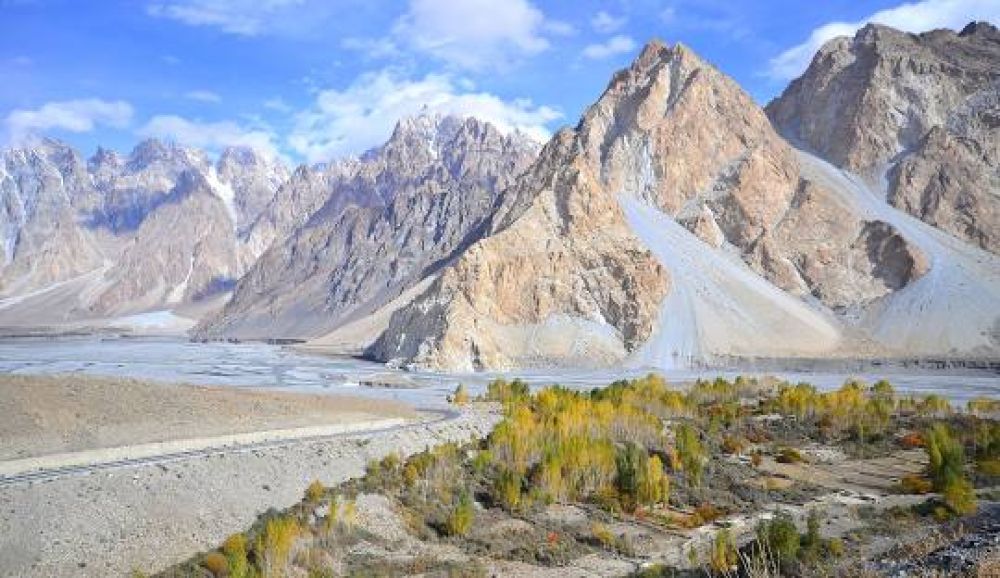

Passu Cones are strikingly pointed peaks located in the Gojal region of Hunza Valley in Northern Pakistan. This natural wonder, characterized by its unique and dramatic shapes, is part of the Karakoram mountain range and stands majestically overlooking the Passu Glacier. These iconic peaks can be easily recognized by anyone traveling along the Karakoram Highway, and they have become a symbol of the rugged beauty inherent to the Pakistani landscape.
The history of tourism in the Hunza region dates back to the inception of the Silk Road when adventurous traders and explorers journeyed across these towering mountains. However, modern tourism began to flourish with the completion of the Karakoram Highway in 1978, connecting Pakistan to China and opening up the region to international travelers.
In the past, only the most ardent mountaineers ventured into the area, but today, Hunza Valley, with Passu Cones as one of its prime attractions, is welcoming a broader spectrum of tourists including trekkers, campers, nature enthusiasts, and cultural tourists intrigued by the rich history of the people of Hunza.
The Passu Cones are often regarded as one of the most awe-inspiring and photographic spots in Pakistan. For decades, photographers, nature lovers, and geologists have been attracted to this sublime mountainous landscape.
The local population, who are predominantly Wakhi speakers and Ismaili Muslims, take great pride in their home and provide a warm welcome to tourists. Their culture further enriches the tourism experience as they share their customs, cuisine, and remarkable hospitality.
In recent years, there has been a considerable shift in the tourism trends of Hunza Valley. The economic and infrastructural support provided by the government, along with the increasing fame of the region on social media, have contributed to a surge in local and international tourism.
Eco-tourism and sustainability have become significant factors in the region, with numerous initiatives encouraging environmentally friendly practices that protect the area's natural heritage while empowering local communities.
Adventure tourism has also seen an uptick with Passu Cones offering incredible opportunities for mountain climbing, trekking, and exploring the nearby glaciers. The recent introduction of new trekking routes and the development of community-based tourism projects have facilitated a more immersive experience for the visitors of Passu Cones.
The trend towards digital nomadism and long-term stays has been noticeable, with tourists seeking destinations that combine the beauty of remote working environments with the promise of adventure—an area where Hunza and the Passu Cones excel.
The Passu Cones continue to be a jewel in the crown of Pakistan's tourist destinations. With their mesmerizing beauty, they invite travelers from all over the world to explore the wonders of Hunza Valley. As tourism trends evolve, these natural pyramids stand tall, telling tales of the past and holding promises for the future of tourism in this enchanting region of Pakistan.